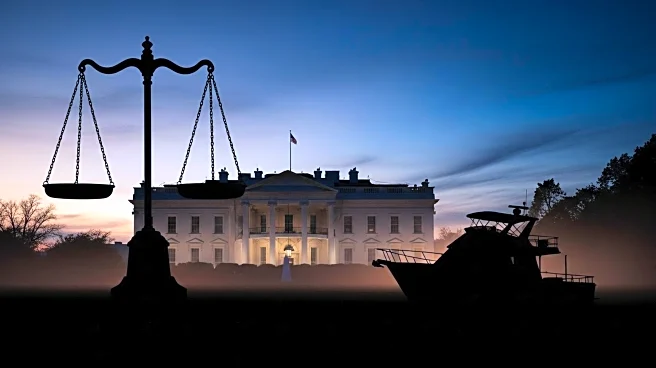What's Happening?
The Trump administration's recent military strike on a vessel suspected of carrying Tren de Aragua drug smugglers has raised legal concerns. President Trump justified the action by designating the group as a foreign terrorist organization, claiming it was a national security issue rather than a law enforcement matter. Secretary of State Marco Rubio supported the strike, emphasizing the need for decisive action against drug cartels. However, the legal basis for using military force remains unclear, as the administration has not detailed the intelligence or legal authority behind the operation.
Why It's Important?
This military action marks a significant escalation in the U.S.'s approach to combating drug trafficking, potentially setting a precedent for future operations. The designation of drug cartels as terrorist organizations could expand the scope of military interventions, impacting U.S. foreign policy and relations with Latin American countries. Critics argue that this approach may bypass traditional legal frameworks, raising ethical and legal questions about the use of force and the potential for international conflict.
Beyond the Headlines
The strike has heightened tensions with Venezuela, as the U.S. deploys warships to the region, prompting accusations of intervention under the guise of anti-drug operations. Venezuela's government, led by President Nicolás Maduro, has condemned the U.S. actions, claiming they threaten regional stability and violate international law. This development underscores the complex geopolitical dynamics in Latin America, where drug trafficking intersects with political power struggles.









